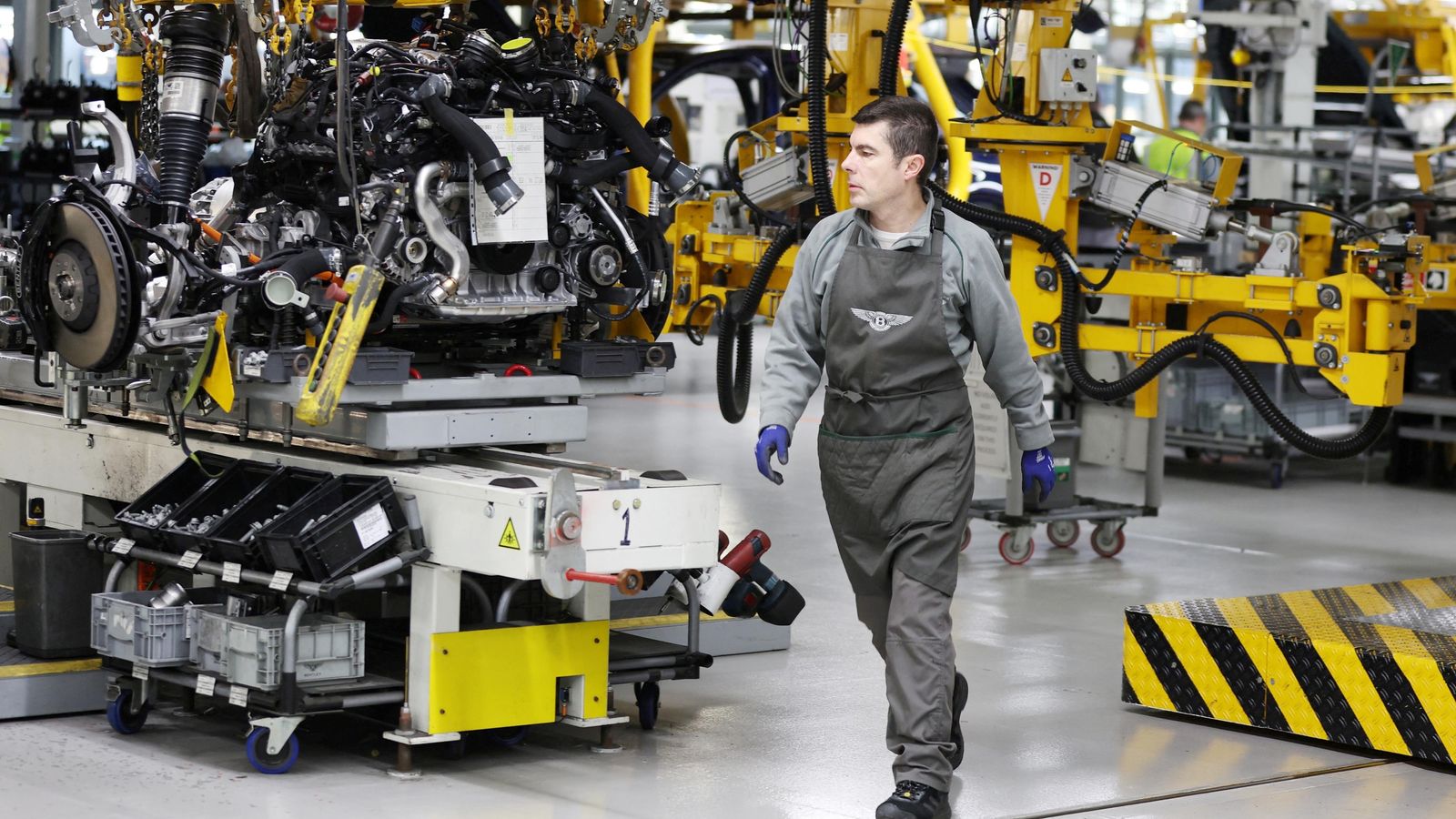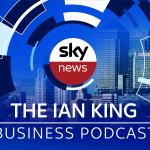Britain’s manufacturing downturn deepened last month as declines in output, new orders and employment accelerated, latest economic data suggests.
“Lacklustre” overseas demand for products made in the UK and a shift in spending away from goods to services in the country were among the reasons, according to the S&P Global/CIPS UK manufacturing purchasing managers index (PMI).
It said the drop in activity in May represented a four-month low, with the sector in negative territory for 10 consecutive months in the survey.
New export orders have also fallen for 16 months in a row, despite supply chain issues beginning to ease for many manufacturers.
However the PMI data did reveal a reprieve on costs for hard-hit firms, with average input prices falling for the first time in three-and-a-half years.
S&P Global Market Intelligence director Rob Dobson said a decrease in demand from overseas had come “amid reports of lost orders from the US and mainland Europe”.
He said this had been “exacerbated by some EU clients switching to more local sourcing to avoid post-Brexit trade complications”.
Brexit: Poll suggests just 9% of Britons think decision to leave European Union more of a success than failure
Britain sees surge in migration despite Brexit – as skilled workers from Asia and Africa plug staff shortages
Nigel Farage says Brexit has ‘failed’ and economy ‘has not benefited’ but Downing Street disagrees
However, Mr Dobson added: “Although near-term conditions remain challenging overall, manufacturers are still finding reasons for optimism including brighter news on the price and supply fronts.
“Average input costs fell for the first time in three-and-a-half years, allowing some firms to maintain efforts to repair and protect margins damaged by a long and often severe period of cost inflation.
“The recent healing in global supply chains is also continuing apace, with lead times shortening to a near record extent in May.”
Customers ‘tired of Brexit checks’
Dr John Glen, chief economist at the Chartered Institute of Procurement & Supply, said “maker misery” for firms continued and that many remained worried about the UK’s economic outlook.
He said the decline in export orders also “demonstrated that customers from overseas [had become] tired of additional administrative Brexit checks.
“The fear around near shoring goods became a reality and the fall in overseas interest was the fastest since January.”
Dr Glen added: “More interest rate rises increasing business costs and the pressure from stubborn inflation will continue to keep business owners awake at night.
Read more from business:
Chancellor comfortable with recession if it brings down inflation
Significant easing of inflation as energy costs stabilise
Sharpest fall in manufacturing since the global financial crash
Be the first to get Breaking News
Install the Sky News app for free
“The threat of recession narrowly missed at the end of last year hasn’t passed entirely so businesses will be tightening their belts for lean times to come which could include more job shedding and reduced operations,” he said.
The survey showed a reading of 47.1 in May, down from 47.8 in April.
Listen and subscribe to the Ian King Business Podcast here
Any score below 50 indicates the sector is shrinking.
Commenting on the data, James Brougham, a senior economist at Make UK, said: “With powerful domestic manufacturing policies in place in the US and the EU, manufacturers can see that the likelihood of much export expansion to the UK’s biggest manufactured goods trading partners is dwindling.
“UK firms are eagerly awaiting both the UK’s response to these global economy-shifting policies, but perhaps more importantly, a unified vision from government for the sector over the next decade, with the long-term policies to boot.”






















